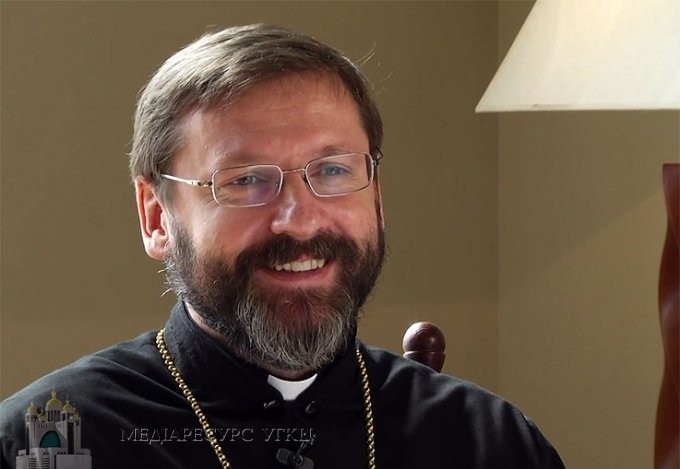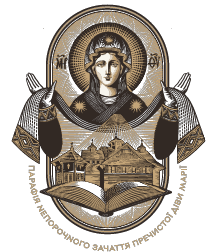
Friday, 20 June 2014, By Matra Allevato
Moscow (AsiaNews) – Against the backdrop of the Ukrainian crisis, tensions are getting worse between local Catholics and the Orthodox Patriarchate of Moscow, which continues to denounce the Greek Catholic Church in Ukraine for its alleged involvement with Western policy vis-à-vis Russia.
In making an appeal for reconciliation through AsiaNews, the Major Archbishop of Kyiv, Sviatoslav Shevchuk, wants Moscow recognises the dignity of the Ukrainian people and open a sincere dialogue based on truth.
“Do not believe propaganda! We are not your enemies, we are brothers; we want to be good neighbours, have friendly relations and close cooperation with you,” the head of the Ukrainian Greek Catholic Church said as he directly addresses his “Russian brothers.”
“We regret that [Russian]state propaganda is creating an image of the Ukraine as an enemy,” he added in a telephone conversation with AsiaNews. “We do not want to do anything that harms or is likely to spurn the dignity or freedom of the Russian Orthodox Church. We just want an open and honest dialogue, which might eventually lead one day to reconciliation.”
Recently, the two highest officials in the Moscow Patriarchate, the Orthodox Primate Kirill, and the head of the Department of Foreign Church Relations, Metropolitan Hilarion, attacked the commitment of Greek Catholics in the Ukraine in favour of Maidan protests.
“Greek Catholics have in fact launched a crusade against Orthodoxy,” the Patriarchate’s ‘foreign minister’ said in April, reiterating the old belief that ‘Uniatism ‘(a term used in a derogatory manner to describe Greek Catholics in communion with the Pope) is a special project of the Catholic Church, aiming to convert the Orthodox to Catholicism.
“This language offends us,” Shevchuk said. “They define us a human ‘project’ and not as the body of Christ. This means denying the Ukrainian Greek Catholic Church the dignity of being a Church.”
“We are sorry that our fellow Christians attack us, by using state propaganda-style tactics and not through a proper ecclesiastical message,” the bishop noted.
“Moscow has the right to interpret social events in Ukraine in its own way, but we Christians must always tell the truth,” he added.
In late March, Patriarch Kirill harshly attacked Greek Catholics, condemning “the direct involvement in political activities, with statements against the Russian Orthodox Church.” This, he warned, casts “very sad shadow” on relations between the Patriarchate and the Vatican.
In reality, “Since the start of the year we have tried to open a direct dialogue with the representatives of the Moscow Patriarchate without much success,” the major bishop of Kyiv explained.
“Card Kurt Koch, president of the Pontifical Council for Promoting Christian Unity, offered to mediate between our Church and the Moscow Church,” the bishop added. “In practice, this means between me and Metropolitan Hilarion, so that we can have in an open, ecclesiastical, and sincere way share our views and calm down tensions a bit. However, from Moscow we only got refusals, without a clear reason.”
When asked to explain this rejection, Shevchuk can only speculate. “Perhaps they refuse dialogue because this would force them to listen to their interlocutor and thus would them to acknowledge his dignity. Perhaps this is what we are missing”.
Still, the prelate noted that relations with the Ukrainian Orthodox Church-Moscow Patriarchate are “excellent.” Indeed, “In the Ukraine all Christian churches as well as Jews and Muslims have always agreed on every position on the current crisis.”
“Recently, we came together with the regent Onufri at the swearing-in ceremony of the new president, Petro Poroshenko,” the bishop of Kyiv said. “We all support his efforts for peace. There is absolutely no tension between the various confessions in Ukraine.”
In the current situation, the Orthodox Church of Moscow is concerned that the Ukrainian Orthodox community (loyal to Moscow) might break away from the Moscow Patriarchate, becoming an autocephalous Church, or even join with the Kyiv-based Orthodox Church in (which already broke away from Moscow).
Whilst the Catholic bishop says he is sceptical about a possible schism within Russian Orthodoxy and the creation of a single Ukrainian Orthodox Church, independent of Moscow, does acknowledge the need for the Russian Orthodox Church to “rid itself of political ideology”.


